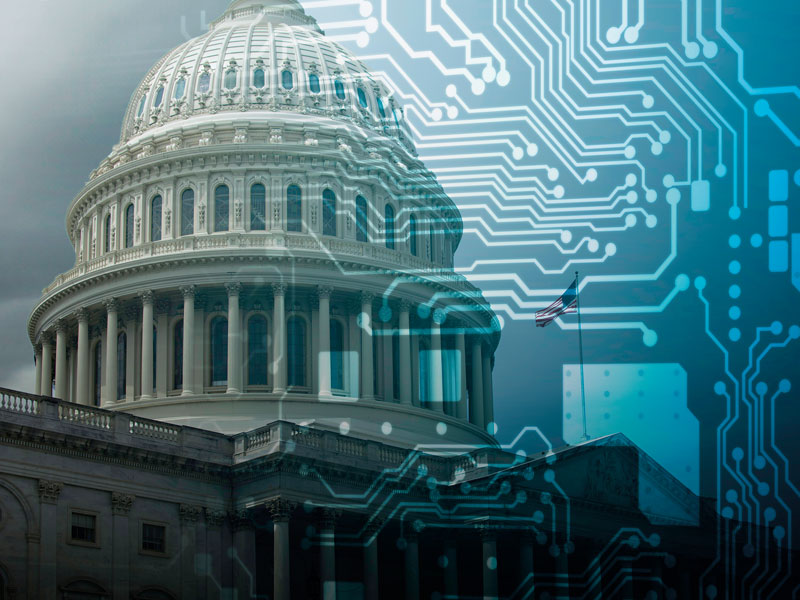
 
Author: Alexandra Mousavizadeh, Co-Founder & CEO, Evident Insights
AI has transformed the financial services industry at speed. From fraud detection and customer onboarding to trading powered by AI insights, it is already reshaping infrastructure and competitive dynamics. According to the Bank of International Settlements, 70 percent of global banks are already deploying or piloting AI in core business functions.
But global AI regulation remains fragmented. The US still lacks comprehensive federal laws and the EU AI Act is redrawing the compliance landscape. For the financial services industry, navigating this picture is a strategic challenge. Many banks are choosing not to wait, moving faster than lawmakers. Evident’s ‘Responsible AI in Banking’ report found that 41 of the world’s 50 largest banks now have dedicated RAI risk and ethics specialists.
What does responsible AI look like?
The real story isn’t banks surging ahead of regulators though – it is that they have recognised the need to do so. AI is both a potential competitive advantage that cannot be ignored and a different type of risk – one that extends beyond traditional model governance into the systems, structures, and culture that support its use. In a high-stakes environment where trust, compliance, and competitiveness are converging, the most advanced banks are redefining what good governance looks like in anticipation of regulation, rather than waiting and reacting. A consensus is emerging: the core principles of RAI must include accountability for outcomes, explainable AI development, and a clear alignment with company ethics and standards. But this is not a checklist; it is becoming a set of strategic imperatives for banks.
A global race for talent
Nowhere is this shift clearer than in hiring. RAI-related recruitment has surged 41 percent year-on-year, even in an otherwise cautious hiring environment. That isn’t just a data point, it is a signal of priorities. Where the talent goes, strategy follows. The number of RAI roles is growing across territories, but the drivers vary. While anticipation of new AI regulations and standards is universal, exposure to EU regulatory pressure may be an accelerator for European and UK banks, which have seen fastest growth in talent.
With governance in place, banks can move quickly on high-potential use cases
North American banks are still signalling that they are taking RAI seriously. Four of the top five banks publishing research papers on RAI-related topics like control mapping and explainable AI are headquartered in the US or Canada, with JPMorgan Chase leading the way. Hiring is not limited to technical teams. Banks are recruiting across AI risk compliance, policy, ethics and more. This means oversight is needed too. Already, 18 of the 50 banks tracked publicly in our AI Index have formed a cross-functional AI Risk or Governance Committee. The rapid growth in RAI hiring in the UK means that ‘Head of Responsible AI’ positions are more common there, though it is likely we will see more of these roles appearing elsewhere alongside broader AI growth.
Despite regional differences, the message is clear: Responsible AI cannot be retrofitted. The leading banks are applying RAI principles not only at the end of the line in model validation or compliance review, but earlier on in problem definition and data selection too. This full lifecycle approach is noticeable in high-impact areas such as credit scoring, lending, and fraud detection, where trust is particularly essential.
Having strong guardrails in place doesn’t need to be a brake – it can be a catalyst to innovation. With governance in place, banks can move quickly on high-potential use cases – like accelerating document processing, improving customer service, and enhancing fraud detection – without fear of backtracking later. First hand experience from leaders quoted in our recent RAI report shows that embedding risk management and ethics into a company’s culture as part of the early development lifecycle is crucial to avoid the loss of invested cost – not to mention to avoid potential damage to customer trust. The smarter approach is to build resilient systems now.
Shaping the future
First movers are also in a better position to shape future regulation, not just follow it. These banks can bring real-world insight into consultations as lawmakers define what best practice looks like. For the customer, RAI ensures fairer, more transparent decision-making. Younger consumers in particular are embracing AI-powered tools to help support their financial wellbeing, but their expectations are high. Good governance is needed to make sure models are explainable and that bias is mitigated.
Banks know they can’t afford to wait. Being ahead of regulation isn’t about avoiding oversight, it is about setting a higher standard. Embedding responsible practices early will allow banks to innovate, protect customers, and stay ahead of future compliance challenges. Responsible AI is no longer a final checkpoint. It is fast becoming the foundation for how banks operate, compete, and create lasting trust. Those leading the charge aren’t just ready for the future, they are helping to build it.